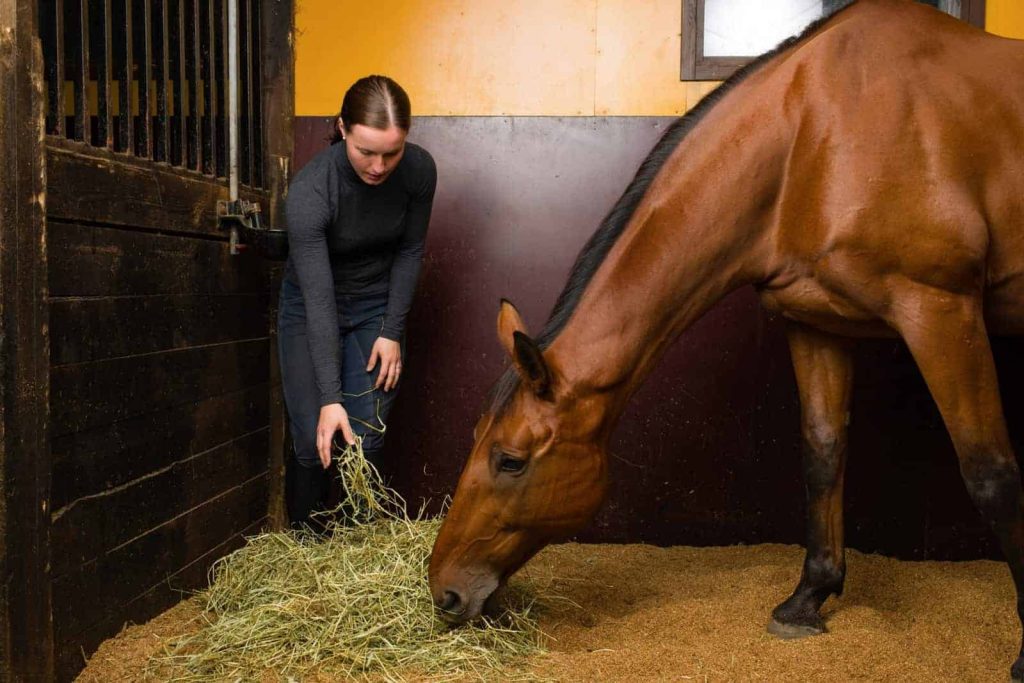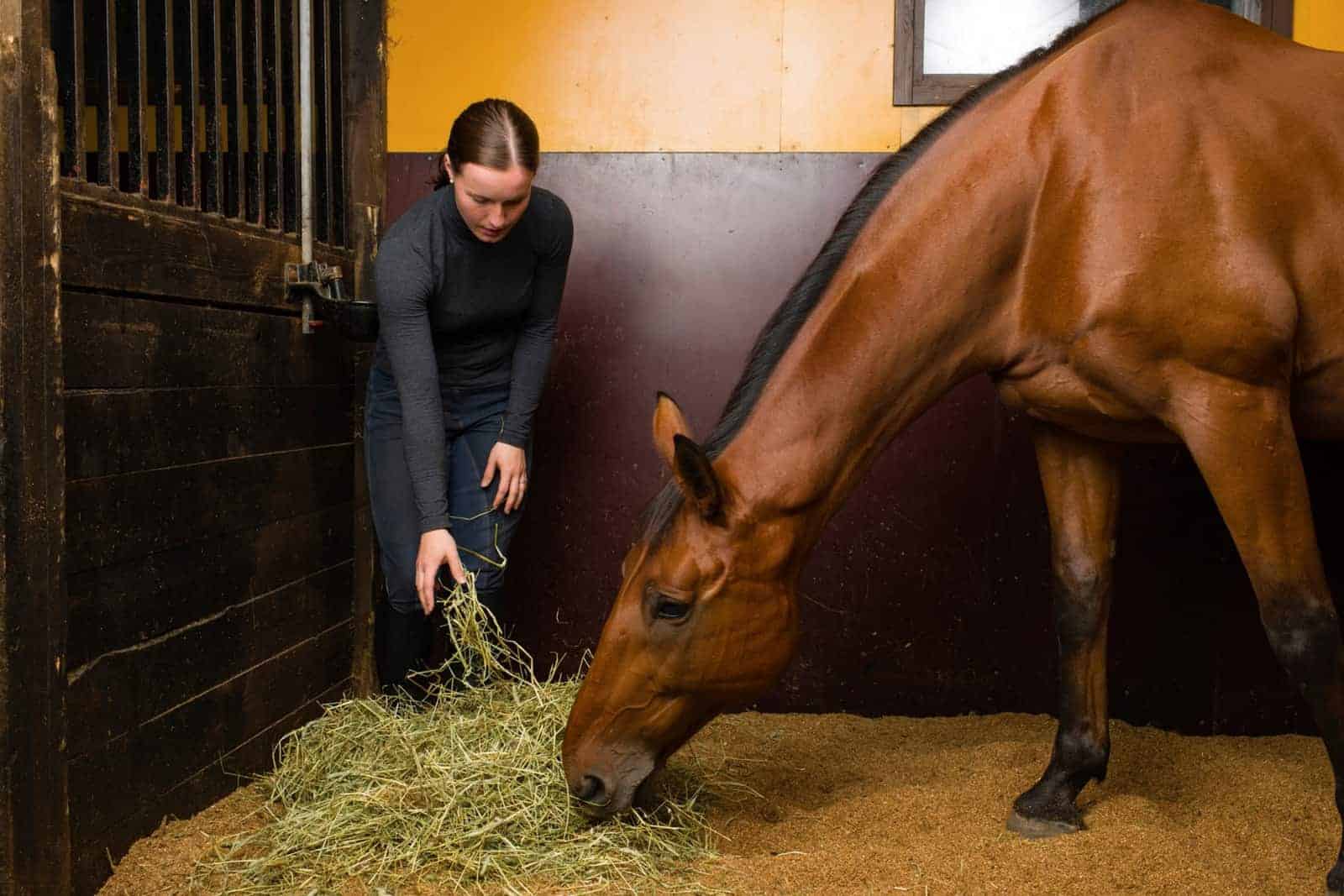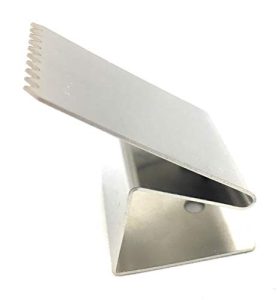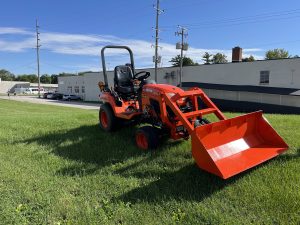Contents
Are you considering getting a horse but are unsure about the financial commitment involved in taking care of one? Look no further! We present to you the “Cost of Feeding a Horse” – a comprehensive guide that will give you an in-depth understanding of the expenses associated with feeding a horse. From the types of feed available to the average monthly cost, this article will equip you with the necessary knowledge to make an informed decision about welcoming a horse into your life.
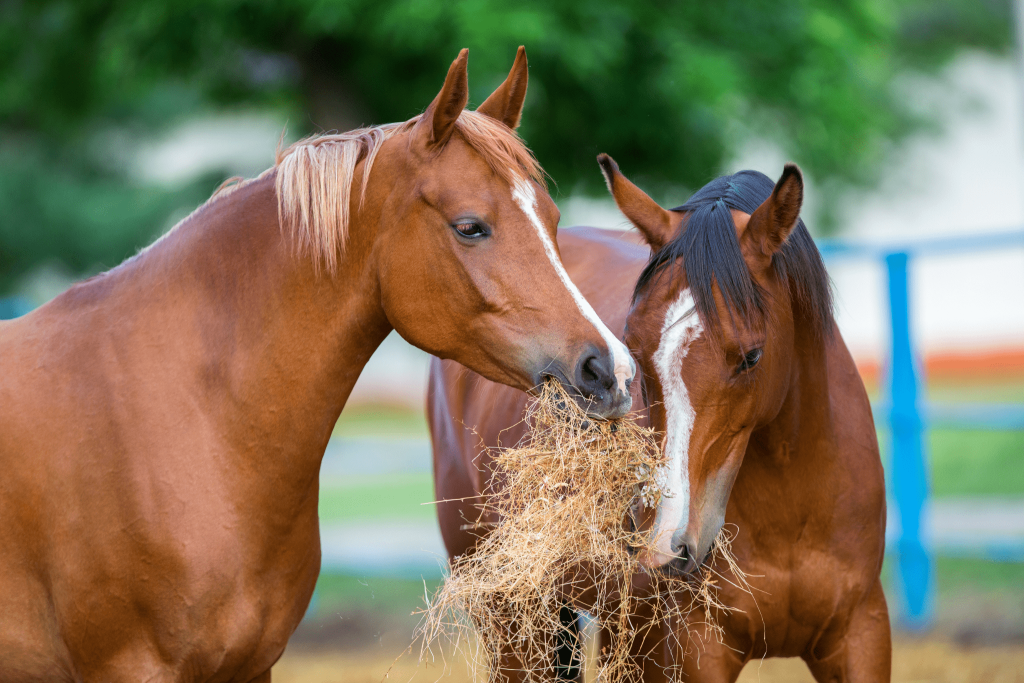
Overview of Horse Feeding
Feeding a horse is an essential part of their care and overall health. As a responsible horse owner, it is crucial to understand the nutritional requirements and the variety of feed options available to ensure that your horse receives a balanced diet. Feeding your horse proper food not only promotes optimal health but also contributes to their overall well-being.
Nutritional Requirements
Horses have specific nutritional requirements that must be met to maintain good health. These requirements include protein, carbohydrates, fats, vitamins, minerals, and water. Protein is essential for muscle development and tissue repair, while carbohydrates provide energy. Fats are a concentrated form of energy and aid in regulating body temperature. Vitamins and minerals are necessary for various metabolic functions, while water is essential for digestion, temperature regulation, and overall hydration. Meeting these nutritional requirements is crucial to support your horse’s growth, energy levels, and overall performance.
Variety of Feed Options
When it comes to feeding horses, there is a wide range of options available. The key is to provide a balanced diet that meets their nutritional needs. The main categories of horse feed include hay, grain, pasture, and supplements.
Types of Horse Feed
Hay
Hay is a staple in a horse’s diet and provides long-stem fiber that aids in digestion. It comes in various types, such as timothy, alfalfa, and grass hay. Timothy hay is commonly fed to horses and provides a good balance of nutrients. Alfalfa hay, on the other hand, is higher in protein and calcium, making it suitable for growing horses or those in heavy work. Grass hay is often used as a filler or for horses that require a lower-calorie diet. The type of hay you choose depends on your horse’s specific needs and dietary requirements.
Grain
Grains, such as oats, barley, and corn, can be added to a horse’s diet to provide additional energy and nutrients. Oats are a popular choice due to their high fiber content and digestibility. Barley is another commonly used grain that provides energy but is lower in fiber. Corn is higher in calories and can be beneficial for hard-working horses. However, it should be fed in moderation. When feeding grains, it is important to monitor their intake carefully to avoid overfeeding and potential digestive issues.
Pasture
Allowing horses to graze on pasture is an excellent way to provide them with fresh, natural forage. Pasture grass contains a wide variety of nutrients and helps promote healthy digestion. It is essential to ensure that the pasture is free from toxic plants and properly maintained. Pasture grazing is not only beneficial for your horse’s physical health but also provides mental stimulation and exercise.
Supplements
In certain situations, horses may require additional supplementation to meet their nutritional needs. Supplements can include vitamins, minerals, joint supplements, electrolytes, and probiotics. These supplements are designed to address specific deficiencies or support certain aspects of your horse’s health. It is important to consult with a veterinarian or equine nutritionist to determine if your horse requires any supplements and the recommended dosage.
Cost of Hay
Factors Affecting Hay Costs
The cost of hay can vary depending on several factors. These factors include the type of hay, quality, availability, location, and seasonal fluctuations. Higher-quality hay, such as alfalfa, may be more expensive compared to grass hay. The availability of hay in your area and the local market demand can also impact the price. Additionally, transportation costs for hay that needs to be shipped from distant locations can affect the overall cost.
Types of Hay
Hay comes in different varieties, each with its own nutritional profile and cost. Timothy hay is widely available, while alfalfa hay tends to be higher in cost due to its higher protein content and overall quality. Other options include orchard grass, brome grass, and coastal Bermuda grass. The choice of hay will depend on your horse’s nutritional needs and your budget.
Comparison of Prices
To get an idea of the cost of hay in your area, it is recommended to contact local hay suppliers or check online forums and classified ads. Prices can vary across regions, so it is essential to gather information specific to your location. Comparing prices and quality can help you make an informed decision while considering the overall budget for horse feed.
Cost of Grain
Types of Grain
Grains are an additional source of energy and nutrients that can be incorporated into your horse’s diet. Oats, barley, and corn are among the common grains fed to horses. Oats are relatively affordable and widely available, making them a popular choice. Barley provides energy but is lower in fiber and may be more expensive compared to oats. Corn is higher in calories and can be more costly, especially when considering transportation and storage.
Comparison of Prices
The cost of grain can vary depending on factors such as location, quality, and availability. It is recommended to compare prices from different suppliers and take into account factors like shipping costs and quantity discounts. Keep in mind that the nutritional value and quality of the grain should also be considered. Balancing the cost and nutritional benefits is essential when choosing the most cost-effective grain option for your horse.
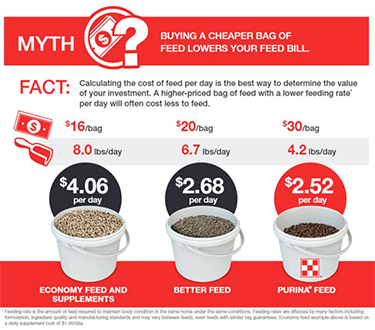
Cost of Pasture
Renting or Owning Pastureland
Providing pasture for your horse can be a cost-effective way to fulfill their nutritional needs. If you own land suitable for grazing, the cost of pasture may be minimal, except for maintenance expenses. However, if you do not have access to pastureland, renting or leasing land for grazing purposes can entail additional costs, such as monthly rent or year-round lease agreements.
Maintenance Costs
Maintaining pastureland involves various expenses that should be considered when budgeting for horse feeding. These costs may include fertilizers, seeding, weed control, and additional care for the pasture. Regular maintenance ensures the quality and quantity of the forage available for your horse. It is advisable to consult with local agricultural extension offices or professionals to determine the specific maintenance requirements and associated costs for your area.
Other Considerations
When considering the cost of pasture, it is important to factor in weather conditions, especially during dry spells or harsh winters. During such times, supplementary feed may be required to compensate for the lack of grazing. Additionally, rotational grazing and proper pasture management techniques can help maximize the forage availability and reduce the overall cost of pasture maintenance.
Cost of Supplements
Types of Supplements
Supplements can play a valuable role in meeting your horse’s specific nutritional requirements. The cost of supplements can vary depending on the type and brand. Common types of supplements include vitamins, minerals, joint supplements, and digestive aids. Each supplement serves a different purpose, and it is crucial to consult with a veterinarian or equine nutritionist to determine the most suitable option for your horse’s needs.
Comparison of Prices
When considering supplements, it is advisable to compare prices from different suppliers and assess the ingredients, quality, and effectiveness of the products. Certain supplements may require ongoing use, resulting in long-term costs, while others may be used for specific periods or situations. Evaluating the cost in relation to the potential benefits and the required dosage is essential to make an informed decision and ensure that the chosen supplements fit within your budget.
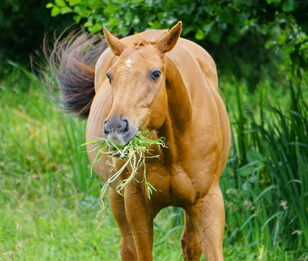
Feeding Schedule and Amounts
Daily Feeding Routines
Establishing a regular feeding schedule is essential to meet your horse’s nutritional requirements and promote optimal health. Horses should be fed at least twice a day, with consistent intervals between feedings. This allows for proper digestion and avoids overloading the digestive system. Additionally, maintaining a consistent routine helps horses feel secure and reduces anxiety related to feed time.
Recommended Amounts
The amount of feed your horse requires depends on various factors, including their age, weight, activity level, and overall health. It is crucial to follow the guidelines provided by equine nutritionists or consult with a veterinarian to determine the appropriate feeding amounts for your specific horse. Overfeeding or underfeeding can lead to health issues, including weight gain or loss, metabolic disorders, and digestive problems.
Factors Affecting Feeding Amounts
Apart from the horse’s individual needs, several additional factors can influence the feeding amounts. These factors include the type and quality of feed, seasonal variations, climate, workload, and overall health status. It is vital to be attentive to any changes in your horse’s condition and adapt the feeding routine accordingly. Regular monitoring of body condition scores and consultation with equine professionals can help ensure that your horse’s nutritional needs are being met.
Additional Costs Associated with Feeding
Equipment and Storage
Feeding a horse also involves additional expenses related to equipment and storage. Depending on the size of your operation, you may require feed bins or containers for storing grains and supplements. Waterers and feeders are also essential to ensure your horse has access to fresh water and feed at all times. Routine maintenance of these equipment items may add an extra cost, but it is essential for the safety and well-being of your horse.
Feeders and Waterers
Investing in feeders and waterers that are durable, safe, and easy to clean can provide long-term cost savings. Choosing the right equipment can minimize waste and prevent feed contamination. Additionally, considering efficient waterers that prevent freezing during colder months can save on water-related expenses. Ensuring the functionality and quality of the equipment is crucial to avoid unnecessary replacement costs and to maintain the overall health of your horse.
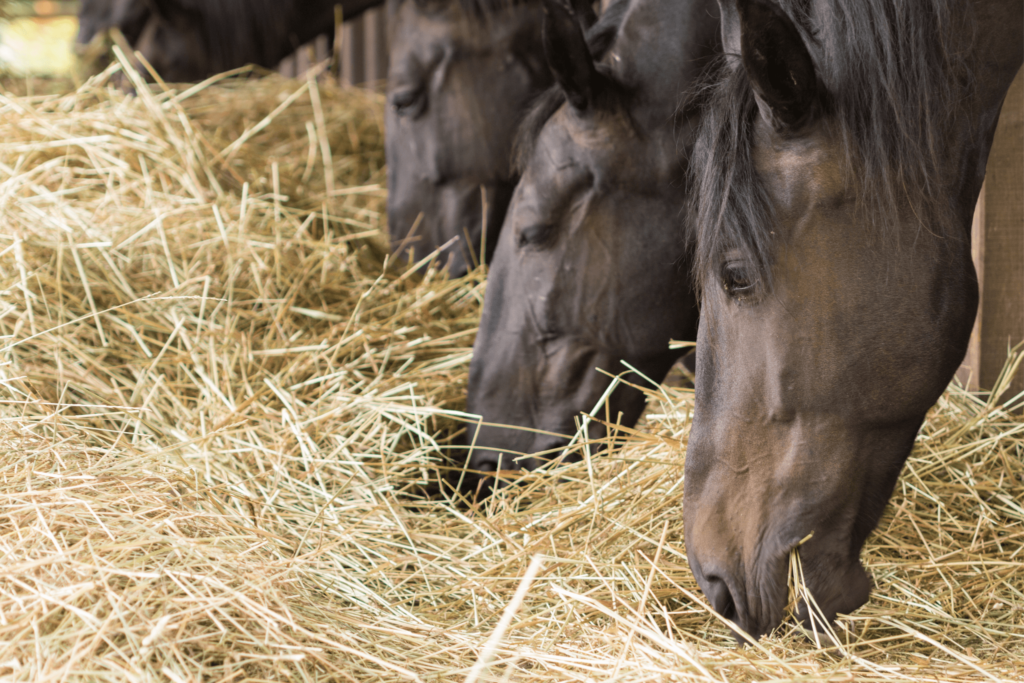
Considerations for Budgeting
Seasonal Fluctuations
Budgeting for horse feed should take into account seasonal fluctuations in availability and cost. Prices for hay and grain can vary throughout the year due to supply and demand. For example, hay prices may increase during winter months when fresh pasture becomes limited. Being aware of these seasonal variations and planning ahead can help ensure that you have an adequate supply of feed at the most cost-effective prices.
Emergency Expenses
Emergency situations, such as injuries or sudden illness, can significantly impact your budget. It is crucial to have a contingency plan and sufficient funds set aside for unexpected veterinary costs. This includes costs related to specialized diets, medications, or any additional feed requirements during the recovery period. By accounting for potential emergency expenses, you can alleviate the financial burden and prioritize your horse’s well-being.
Conclusion
Feeding a horse involves careful consideration of their nutritional requirements, available feed options, and associated costs. Providing a balanced diet that includes hay, grain, pasture, and supplements enables your horse to thrive and maintain good health. By understanding the factors influencing the cost of feed and planning accordingly, you can effectively budget for your horse’s feeding needs. Remember to consult with equine professionals, such as veterinarians or equine nutritionists, for personalized recommendations tailored to your horse’s specific needs and your budgetary constraints. With proper planning and attention to your horse’s dietary needs, you can ensure that they receive the nutrition they require while minimizing financial strain.
